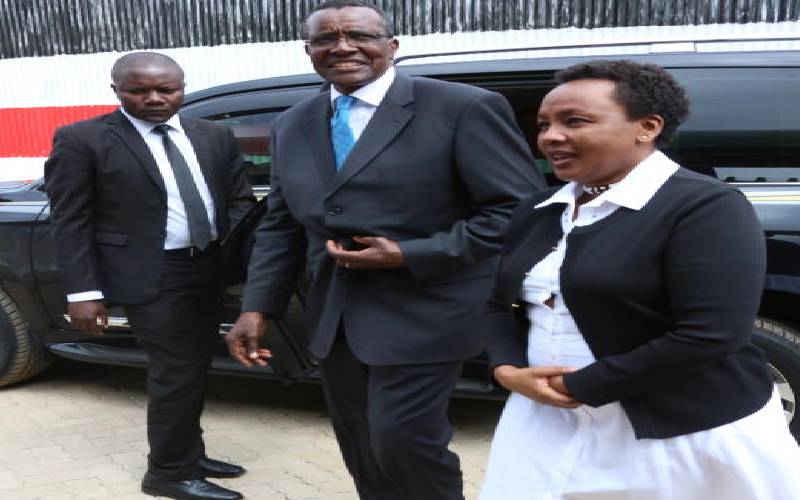×
The Standard e-Paper
Home To Bold Columnists

Chief Justice David Maraga with his deputy, Philomena Mwilu. [Kibata Kihu, Standard]
Chief Justice David Maraga has accused Parliament of using delaying tactics to frustrate determination of his recommendations to dissolve the House over the gender rule dispute.